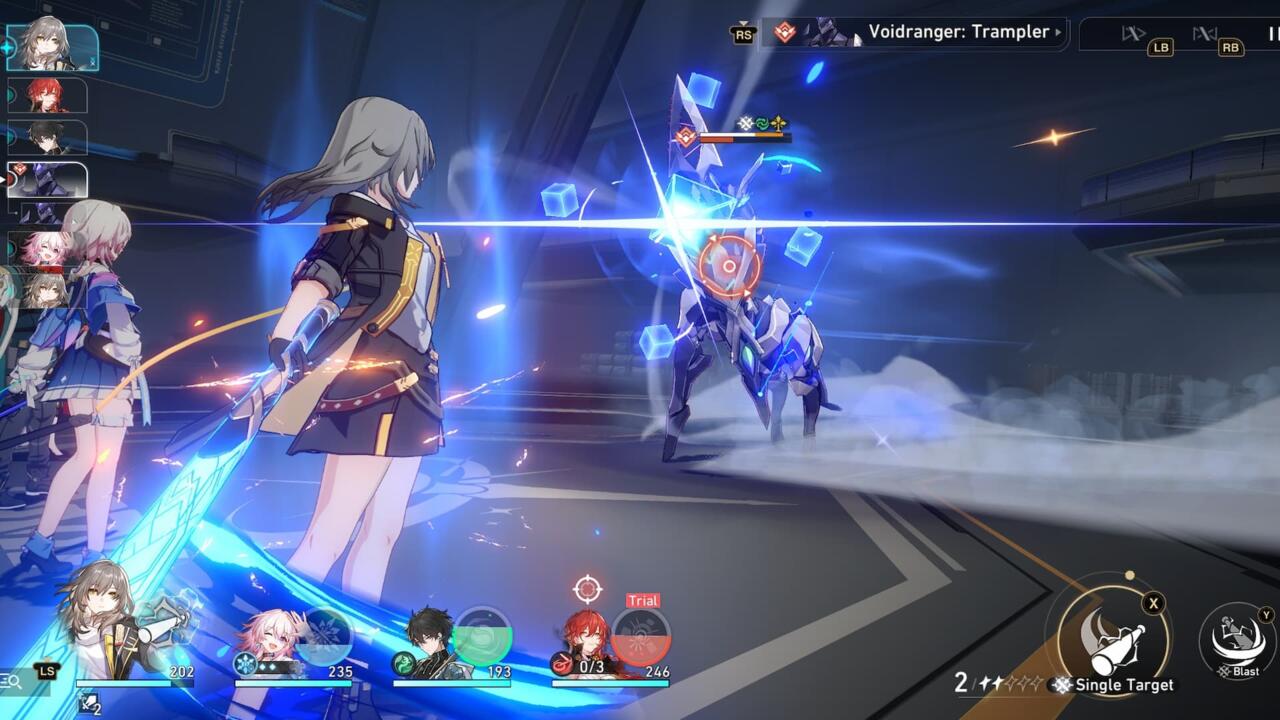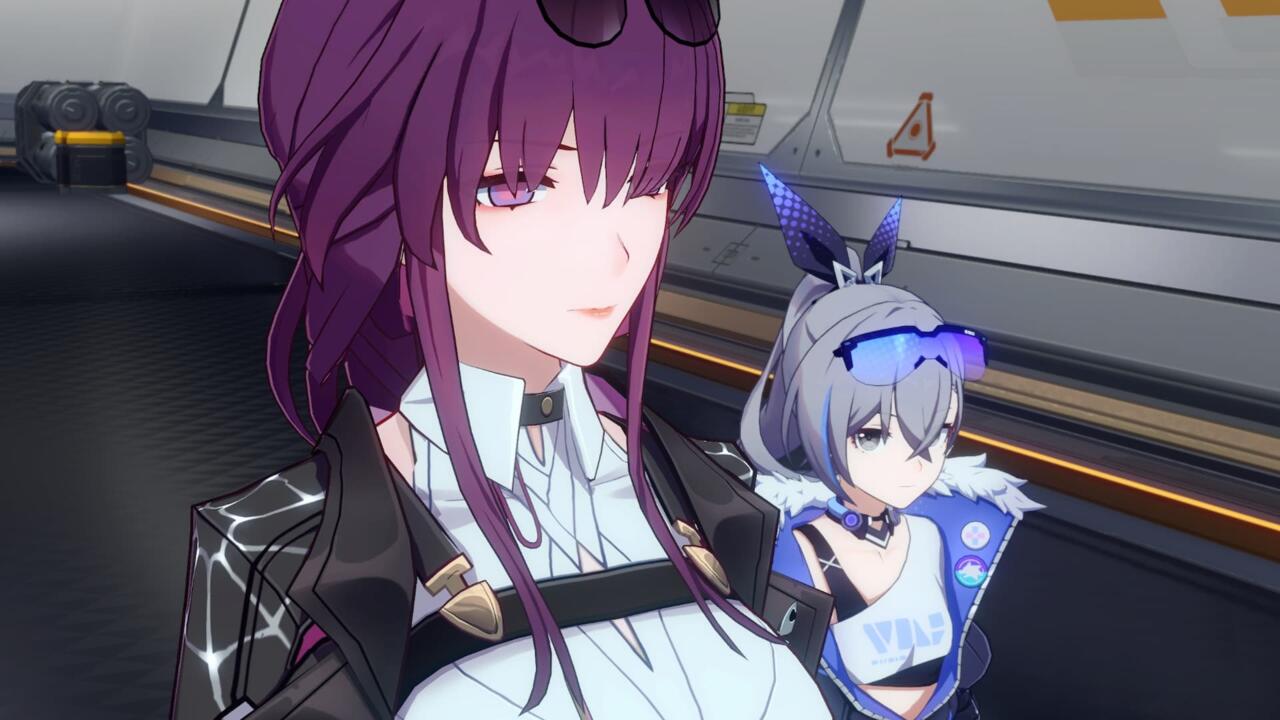Honkai: Star Rail Is For Genshin Impact Fans Who Don’t Have Time For Open Worlds
These days, I find it hard to get excited when developers talk about how much bigger their new open-world map is when compared to their previous games. It sounds cool, sure, but then I’m overcome with thoughts of how I’ll never be able to put enough time into a massive open world to get the full experience out of it. HoYoverse has done the opposite when going from Genshin Impact to Honkai: Star Rail, and it looks to be an ideal direction.
Honkai: Star Rail is a game that, at least at this point, respects your time. It channels some of the best parts of Genshin Impact while cutting out a lot of what could be considered barriers to entry for newcomers or those with time constraints. In Genshin Impact, the tutorial section was tedious as all hell, forcing new players to trek across wide areas just to enter mini-dungeons to learn basic mechanics–like Breath of the Wild’s Great Plateau but far less fun. Meanwhile, Star Rail offers a more linear experience that isn’t afraid to get to the point almost immediately, in nearly all aspects of the gameplay.
HoYoverse developers mentioned streamlining their beginner tutorial process during our Genshin Impact version 3.1 interview last year, and it feels like that sentiment made it into Honkai: Star Rail with the level design, especially in the opening hours. From the jump, you don’t have to fumble around the environment to get to quest markers or notable destinations. The small, maze-like areas don’t encourage much exploration, but they’re far more focused and still feel varied enough to keep your attention.
The maps also provide all the info you’ll need while traveling through them. Stressed about missing treasure chests? There’s a counter that lets you know how many you’re missing in each zone. Wondering where the next Space Anchor checkpoint is? It’s already on the map, even if you haven’t unlocked it just yet. And although the world is divided into distinct zones that can’t be traversed seamlessly, 3D zoom-outs show how these areas are positioned relative to each other, keeping the world from feeling like a series of disconnected maps.
One interesting detail about these small zones is that HoYoverse still manages to cram as much lore and world-building into them as you’d expect, even without the usual amount of environmental storytelling that comes with open-world games. This does, however, come at the cost of more frequent info dumps that’ll have you checking the in-game Data Bank after every few conversations early on.
Having to stop and check terms often isn’t ideal, but it feels much better doing so in-game as opposed to pausing and checking the wiki pages online. The multitude of in-game currencies will still take some time to figure out–as with most free-to-play games–but nearly everything lore-related is covered in the Data Bank after the opening mission.

The more streamlined map approach is present in the combat system as well. Honkai: Star Rail’s turn-based battles aren’t inherently longer or shorter than Genshin Impact’s real-time fights, depending on enemy strength, but they do contain features that are a godsend for those of us who would rather not choose every single input to take down the 20th enemy mob in a single location.
HoYoverse has added speed-up and auto-battle functions this time around, allowing you to breeze through all of the encounters that your squad members would be able to handle with their eyes closed. This doesn’t mean that you should leave everything up to the AI, though. There are plenty of boss fights and formidable foes that you’ll want the satisfaction of outsmarting yourself.
The auto-battle also won’t do a better job than you when it comes to managing meters, implementing strategy, and timing Ultimate moves to interrupt enemy turns when you need to pull out wins against higher-level enemies. With that said, the auto-battle does become reliable in the vast majority of combat encounters if you choose to spend more money on character pulls and banner items, but that’s to be expected for gacha games like this one.

If you’re new or nervous when it comes to turn-based combat, the game does a good job of easing you into its mechanics over the first couple of main missions. The first of them is essentially one giant tutorial that jump-starts the plot. It introduces one or two new concepts or features during the first few battles instead of throwing everything at you all at once.
HoYoverse also added a number of small, quality-of-life features to go with the solid time-saving implementations–some of which I didn’t realize I wanted in Genshin Impact until I saw them in Honkai. Those include the ability to sprint indefinitely outside of combat and the simple option to hide text boxes mid-conversation, allowing for some perfect photo opportunities.

If you were one of the players who fell off of Genshin Impact not due to disinterest, but because it felt overwhelming, Honkai: Star Rail might be a better fit. The world somehow feels vast yet manageable all at once, thanks to the fact that you ride a space train to travel between planets instead of making the journeys manually. Your experienced, space-faring crew is full of individuals who will answer most questions you’ll have during your travels, and environments change drastically between destinations.
Of course, the RPG will eventually grow in size, given that it’s another live-service game. But it already seems as though HoYoverse has laid the groundwork for Honkai: Star Rail in a way that will keep you from feeling like a huge time investment is required to get anything done.
The products discussed here were independently chosen by our editors.
GameSpot may get a share of the revenue if you buy anything featured on our site.
For all the latest Games News Click Here
For the latest news and updates, follow us on Google News.
